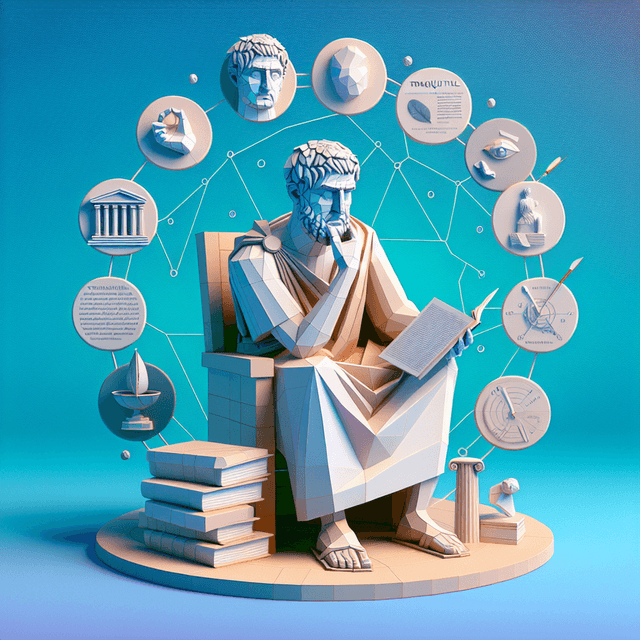Cicero And Stoicism
9 December 2023
Cicero: The Orator and Stoic Philosopher
Marcus Tullius Cicero, the renowned Roman statesman and orator, was deeply influenced by Stoicism. Cicero was not only an avid student of Stoic philosophy, but also significantly contributed to its popularization in ancient Rome. He believed that Stoicism offered a practical and virtuous approach to life, and his writings reflect a strong Stoic influence.
Cicero's Dialogues and Stoicism
Cicero's philosophical dialogues, such as 'On Duties' and 'On the Nature of the Gods', delve into Stoic principles and ethics. In these dialogues, he explores the Stoic concept of living in accordance with nature, accepting what cannot be changed, and cultivating virtue as the highest good. Cicero's nuanced engagement with Stoicism provides valuable insights into the practical application of Stoic teachings in daily life.

Zeno, Chrysippus, and all their kind will give you advice that is temperate, honourable, and suitable.
- Seneca
Cicero's Influence on Stoic Thought
Cicero's interpretations and adaptations of Stoic doctrines played a significant role in shaping the development and spread of Stoicism. His works served as a bridge between Greek Stoic philosophy and the Roman intellectual milieu, contributing to the integration and assimilation of Stoic ideas into Roman culture and ethics. Cicero's impact on Stoic thought continues to be a subject of scholarly interest and admiration.
Cicero's Enduring Legacy
Cicero's profound engagement with Stoicism and his role as a proponent of its principles have left an indelible mark on the history of philosophy. His eloquent writings and persuasive advocacy for Stoic virtues have resonated through the ages, inspiring generations of thinkers and individuals seeking wisdom and moral guidance. Cicero's legacy as a philosopher, statesman, and Stoic advocate endures as a testament to the enduring relevance of Stoic philosophy in the pursuit of a meaningful and virtuous life.

The Modern Relevance of Cicero's Stoicism
Cicero's insights into Stoicism continue to offer profound relevance in the modern world, addressing timeless questions of ethics, resilience, and personal flourishing. His emphasis on cultivating virtue, maintaining inner peace amidst adversity, and aligning one's actions with moral integrity resonates with contemporary discussions on well-being and moral philosophy. The enduring appeal of Cicero's Stoicism reflects the enduring universality and applicability of Stoic principles in navigating the complexities of human existence.
philosophers
Exploring Cicero's Stoic Legacy
Delving into Cicero's engagement with Stoicism provides a fascinating exploration of the interplay between ancient philosophy and the human quest for wisdom and meaning. By examining Cicero's writings and their impact on Stoic thought, one can gain profound insights into the timeless relevance of Stoic principles and their enduring influence on ethical discourse and personal development. Cicero's legacy as a Stoic philosopher invites contemporary contemplation and reflection on the pursuit of virtue and tranquility in an ever-changing world.

Written by

Max writes is a online stoicism content writer. He is passionate about making stoicism accessible for everyone.